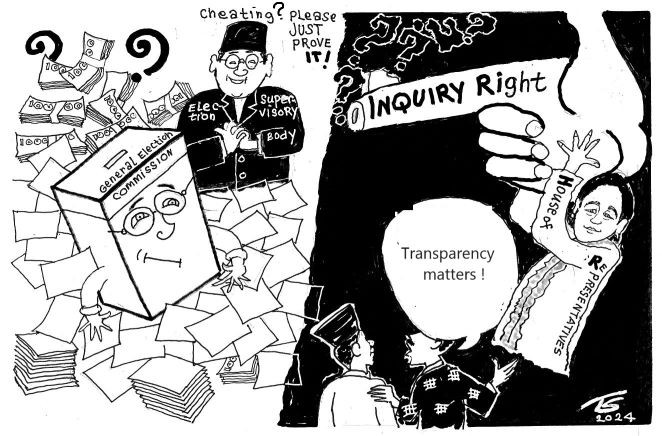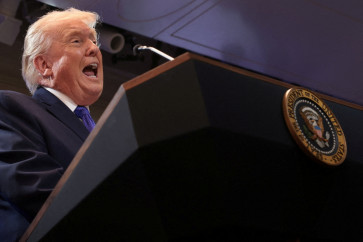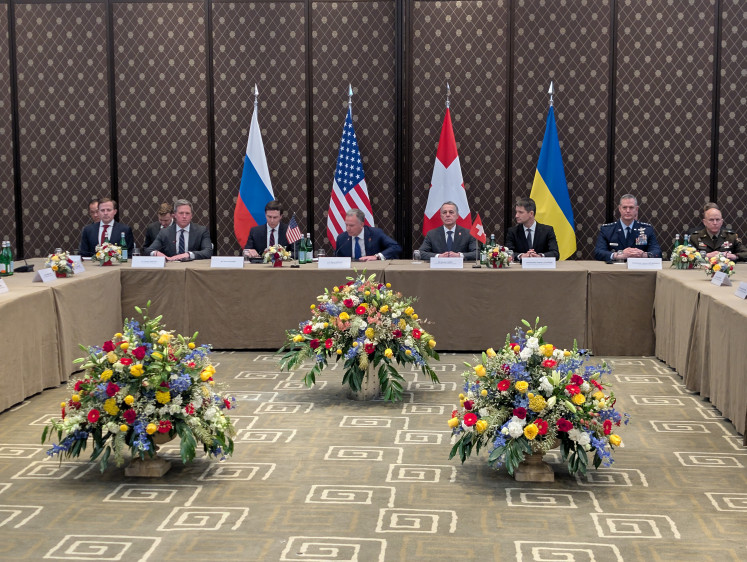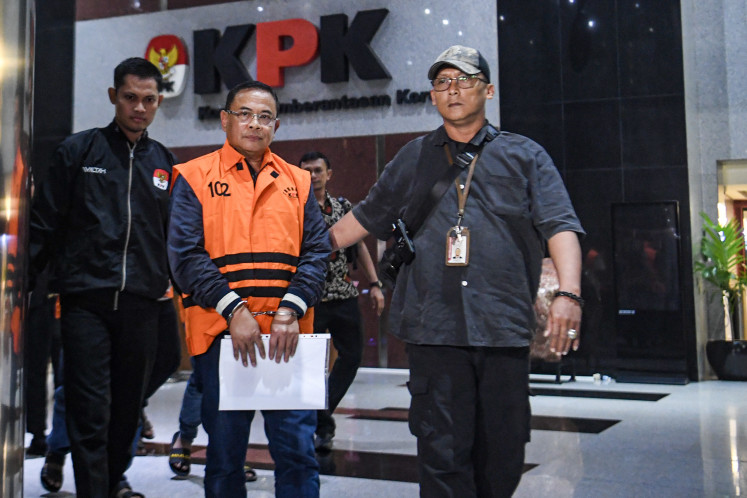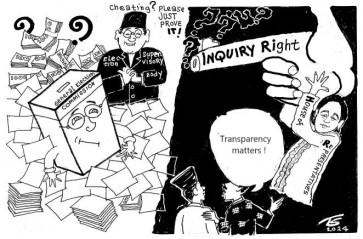Popular Reads
Top Results
Can't find what you're looking for?
View all search resultsPopular Reads
Top Results
Can't find what you're looking for?
View all search resultsPolitical legitimacy: Between the right to rule and the duty to lead
The House's investigation into the President’s maneuvers in election irregularities should be seen as an effort to realize public accountability and control.
Change text size
Gift Premium Articles
to Anyone

Questions about the moral and legal validity of the recent presidential election and calls for the exercise of the House of Representatives’ right to investigate alleged electoral fraud continue to gain momentum. The extent to which these questions will be answerable remains to be seen. As is often the case, it will depend on political dynamics and the willingness of those in power.
There have been incessant behind-the-scenes political lobbying maneuvers by the government, and various arguments in the public sphere by politicians and scholars trying to downplay such questions and calls. In the end, these questions and calls might become nothing more than loose voices whose echoes will soon fade away in the euphoria of consolidation of political interests and power.
But if we, as a nation, genuinely want to live up to the true spirit of reformation after the long oppression of the New Order Regime, there should be genuine concern about the apparent common crisis of virtue and value in our political system.
We are facing a crucial issue regarding the virtue of our political institutions, our bureaucratic leaders and of the decisions they make about laws, policies and figures who manage political power and hold leadership positions.
The issue at hand is a crisis of political legitimacy, arising mainly from the unjust maneuvers our government carries out while managing our political systems and institutions, whose rational, moral and legal validity are being questioned by the public. We are witnessing the continued sacrifice of the rule of law on the altar of political power in the name of democracy and the public good.
According to Joseph Raz, while political legitimacy is often associated with a right to rule the citizens of a political territory, it gives rise to an obligation to obey on the part of those who are ruled. A reasonable question is, to what extent should we trust and obey a political leader who exercises the right to rule based on legal and moral irregularities as well as logical anomalies? Simply put, to what extent should we trust and obey a political leader that has a certain degree of questionable political legitimacy?

If we agree with the argument about the right to rule as a basis for political legitimacy, the ongoing irregularities and anomalies in our current political process remind us of the danger of justifying such an argument. Such justification tends to be biased in favor of the interests of the power that be.

